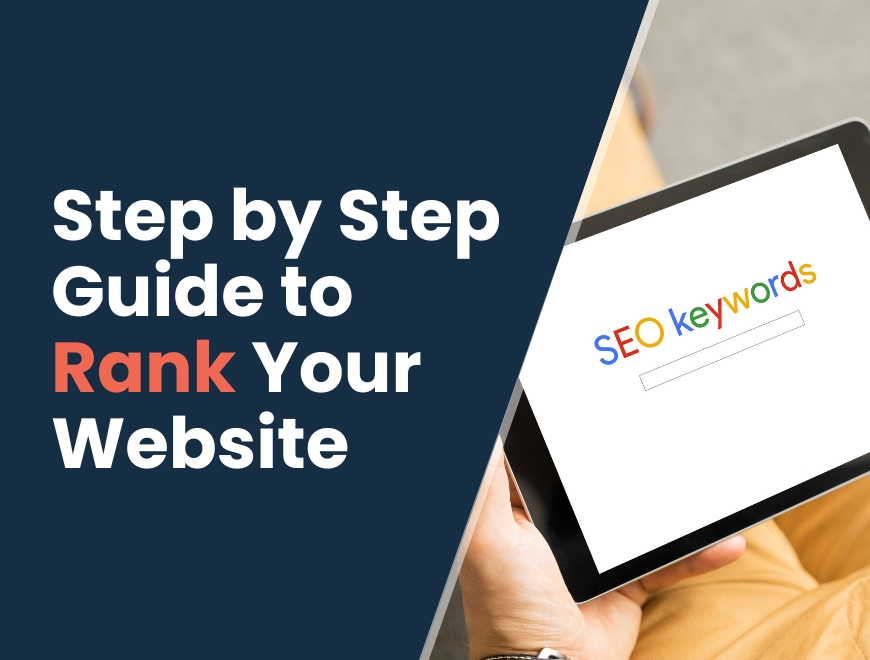Keywords are at the heart of search engine marketing. In this blog, we’ll delve into their significance and how to select the right ones for your campaign. I’ll discuss how keywords are the foundation for everything you’re going to be doing when marketing your business in a search engine like Google.
The Power of Keywords
Keywords form the bedrock of search engine marketing. They act as the bridge between what users seek and what Google delivers. Think of keywords as the keys to unlocking your online visibility or from a consumer perspective – to find exactly what you are looking for.
A Little History Of Keyword Origins
Keywords aren’t a new concept. They’ve been around since the Yellow Pages era when businesses strategically named themselves to appear at the top of listings. For those born after 2000, Yellow Pages was the analogue version, a huge book of what would now be Google search results found in every home.
Keywords are the key words that people use; they’re just looking for information. The concept of keywords actually precedes the internet. If someone wants to know something or find something, they use a set of words to ask for it. Like, “What’s the world record for solving Rubik’s Cubes on a skateboard?” The answer is 500. You can Google that if you don’t believe me.
They’re just trying to navigate to a particular page to source a certain piece of information. Rubik’s Cube could be an informational keyword. Adding ‘Solve’ would bring up a lot of articles with advice on how to do this. It would shift to a commercial intent keyword if the word ‘buy’ is placed in front of it. Or ‘where do I buy Rubik’s Cube’, even ‘Rubik’s Cube types’?
Rubik’s Cube could be the ultimate transactional keyword because someone wants to spend money and transact.

4 Types of Keywords & Intents – The ‘What’ And The ‘Why’
There are four main types of keywords, all of which carry a different intent. The main keyword, let’s say ‘Rubik’s Cube’, is the ‘what’. The intent is the reason behind someone’s search – the ‘why’. Is someone looking to buy, researching or trying to find a certain piece of information?
Informational keywords are about seeking knowledge, like finding the Rubik’s Cube skateboard record.
Navigational keywords help users find and navigate to specific websites, like ‘Guinness World Records.’
Commercial keywords signal intent to purchase, ‘buy a Rubik’s Cube.’
Transactional keywords indicate clear purchase intent: ‘Rubik’s Cube, buy near me’.
You need to start by targeting commercial and transactional keywords. These cater to users deeper in the buying cycle, making them more likely to convert. Eventually, if you’re running a successful search marketing campaign, you want to have all these keywords somewhere in the mix.
Tying The Buyer’s Journey Into Keywords
How do keywords relate to the way that people buy stuff, aka the buyer’s journey? Every time you consider a purchase, you are in one of four stages. Whenever you buy anything, anything, think about the last time you bought something.
The buyer’s journey consists of four stages:
1. Not Problem Aware: Consumers at this stage aren’t actively seeking solutions.
2. Problem Aware: They realise they have a problem but might not pinpoint it.
3. Consideration: This is a stage of actively searching for solutions, and comparing what’s out there.
4. Decision: This is the buying stage – customers are now ready to transact with a solution, product or service provider.
“Understanding where your audience falls within this journey helps you tailor your keyword strategy accordingly.”
Let’s say you’re a business owner and you want to scale your business, but you’re struggling. You might go to a search engine and just type in, ‘How do I scale my business?’ Now, that’s not actually a problem per se, that’s just a symptom of a problem. The symptom is that you don’t know how to scale your business, but what’s the underlying problem?
You may have found a whole bunch of articles about scaling – and one might say, ‘In order to scale your business, you need to have a solid marketing plan that can reliably get you new customers’.
You keep reading, and then you work out that you will also need to convert new leads into customers. But then it dawns on you that you’ll have to be able to look after these new customers and deliver what you promise to these new customers, and you’re not sure if you have the resources in place to do this as yet.
So you’ve discovered that the problem might be that you have zero idea how to market. You know you are amazing at selling, you are sure you can deliver the product. You know how to service people and collect money, but you just have no idea how to market. Now, armed with the knowledge of what your problem is, you can begin to find a solution.
Real-World Examples
Now that you’ve realised there are a vast array of problems that can stop a business from scaling – lack of marketing, lack of sales, lack of delivery, lack of financial management. They are all problems that relate to the symptom you’ve been experiencing, which is ‘I don’t know how to scale.’ Through your research, it’s become resoundingly obvious that your problem is being absolutely clueless about marketing. The rest you can do, or can work out pretty easily.
So you start searching for more information about marketing, and suddenly you become aware that you don’t have a Google Ads campaign in place. And you have no idea how to get started doing this. You are faced with either working that out or finding someone who can help you solve that.
You might read lots of articles or watch YouTube videos, and realise that Google Ads are super complex – and you don’t have the skills, time or patience to do this on your own. So you start browsing agencies that provide this service because you are trying to run and expand a business, not become a Google Ads expert.
‘Brisbane Google Ads agency’. Sydney, wherever you’re located. So now you’re in commercial keyword territory – you’re at the consideration stage. You know the problem, you are getting closer to understanding the solution.
You speak to a bunch of agencies, they send you a heap of proposals. You get your head around the pricing, the deliverables, the timelines, all that sort of stuff. And now you start to think, okay, I just need to find the best vendor.
“So you start to move to the decision stage, and now you’re looking for who’s the best Google Ads agency in Sydney. You start to read reviews. You’re looking at case studies. Are people saying good things about them online? Do they have five stars?”
You’re trying to make a decision about which vendor you want to go with. Ultimately you make a call – you’ve got yourself an agency and they’re running your Google Ads.
This whole process happens during every single transaction. Sometimes it happens within seconds. You might think to yourself, we’re out of baby wipes. So you think, okay, I need to go and get baby wipes, and you do. The whole cycle is finished in under 15 minutes.
You knew the problem, and you knew what the solution was, and you knew where to go to buy the product.
So it can happen instantly or over a couple of months, which is often relative to ticket price. Buying a new car will usually take a lot longer than a tee-shirt. And this is why you need to understand how your customer is thinking and where they are at in the buying cycle before you market to them.

Matching Your Keywords To The Buyer’s Journey
So you know your buyer’s journey consists of awareness, consideration, and decision stages. The choice of keywords should align with this journey. Consider what your potential customers might search for at each stage. Tailor your content and marketing efforts accordingly, providing the information and solutions needed to move them closer to the decision stage.
“Ultimately, you want to position yourself as the solution. If you’re going after ‘bottom of the funnel’ or decision consideration keywords, a lot of the time, you haven’t had an opportunity to shape that person’s understanding of the problem.”
If you are coming in right at the end of the funnel and basically throwing your hat into the ring with ‘we’ve got the solution, we’re the best vendor to solve your problem’ after a customer has already done all their homework, you need to be speaking to them in a language which is contextual to this stage of the buying cycle.
You’re not trying to educate them about the solution now; you’re aiming to educate them on why you’re the best choice to do business with. This means your keywords need to be very commercial and transactional orientated to ensure you get the right traffic to your site. Once you’ve got that dialled in, you want to move further up the buying cycle towards that awareness stage.
Start At The End – Then Move Back Up The Buying Cycle To Create Awareness
You can write content – blogs and articles to educate people about their problems. For example, if you’re a wedding photographer, your end decision-making bottom of funnel keywords would be all about the wedding photographer and the suburb you service.
As you go further up, you might start to think about what people might be looking for in their early stages. How much do wedding photographers cost? How long does it take? When do I get the photos? How do I choose a great wedding photographer? What are the things I need to consider when booking a wedding photographer?
All of these questions are in the problem awareness stage. You must create content that targets the people in that mode of ‘I need to understand how this all works’. If you give them the information and you’re in their target area or you’ve got a great price, they will most likely go ahead with you.
“It’s far better to start at the end of the funnel and target people already searching for a wedding photographer in your area. They’ve done their homework, know what they want, and are specifically looking for a business to deal with.”
Showing up at the end of the line means you’re in the mix. You can then start to move further up the cycle and write awareness driven educational content – which is exceptionally valuable for B2B sales. You may even use a lead magnet, collecting user emails as it’s downloaded. This will showcase you as an expert in your field. You can use tools like HubSpot to autofill details of users attached to these email addresses, too – which gives you so much more to work with than IP addresses.
Using Data To Intelligently Understand Your Customer’s Readiness Stage
You now know if someone has downloaded your lead magnet. You may notice that weeks or months ago, they came to your website, read your articles, and checked out a few pages.Or maybe not, but if they did, you can sense that this person knows who you are. They’ve spent time on our website, downloaded a lead magnet, and given you their email address.
You can reach out to them at some point, or at least start to communicate with them softly via email to warm them up – and get more of a sense of if they are opening the emails. Are they interested? You can see the level at which they engage and get a feel for if this is valuable content. Did they read the email twice fully or unsubscribe?
Straight away, you’re starting to get an insight into how the potential lead or customer is engaging with your site, or emails and how ready they are to receive a phone call. You may even have some sort of lead-scoring process to identify if a customer is receptive to a conversation.
“That’s a great way to use those top of the funnel keywords to attract traffic to your site, and then intelligently use data to understand the part of the buying journey these people are on and make contact with them at the appropriate time.”
Keywords are fundamental, and super important to get right. So – start at the end with the transactional commercial type keywords and work your way back up to solution / awareness based keywords. Once you’ve covered all those bases, you’ll have a very strong search marketing campaign that will bring a lot of traffic to the site.
Validate Your Keywords As You Go
So, how do you validate your keywords? There are a number of tools you can use, including Ahrefs, and SEMrush. The ultimate tool is Google Keyword Planner. The only caveat with that is you need to be spending a certain amount of money with Google every month in order for them to give you access to that keyword data.
Otherwise, it gives you ranges, which aren’t that accurate. If you have access to Google’s Keyword Planner, you can start to validate – or just email me, I’m happy to have a look for you. The idea is to put the keyword in and Google will spit back an average of how many people each search that keyword monthly. You want to target keywords that have at least some people searching for them every month, at least, 40 people a month searching for them.
“In order to rank for those keywords, if you want to rank organically, you will have to create content. And you’re going to have to most likely link build. So there’s going to be an investment of time, money, effort into building a page, creating content, optimising that content to show up when people search for the keyword that you think they will be searching for.”
So you need to ensure that people are searching for your keywords. Otherwise, you’ll do all that work, and nothing will happen. You won’t move the needle – so validate your ideas.
What’s A Keyword Worth To Me? Validating Keywords and Calculating ROI
This will depend on the level of effort required to rank your website number one for a keyword versus how much money you’re going to make from the people that come. This will have a lot to do with your customer’s lifetime value, and you need to plan strategically to make sure your efforts are financially viable.
Let’s say a keyword has 100 searches a month and you rank number one in Google organically for that keyword. So not for paid Google ads, but organic search. If you’re number one, you’ll get about 30% of people who search for that word click on your website.
Now, 30 people come to your website, who are specifically looking for a particular thing that you do. They’re on your site, reading your content. Let’s say 20% of them, which is a high bet, decide they’re going to reach out and have a conversation with you about your product or service. And that’s 6 people, with this maths, six new leads coming in every month because 100 people searched for the keyword that you are ranking for.
“Let’s say you convert one or two of those into customers, into a measurable sale. You need to break down how much you think, on average, you are going to make from a sale versus how much it costs to rank number one in Google – and stay number one – for that particular keyword?”
And that’s how the maths will stack up, and why keywords are incredibly important. The other thing to look at is at the top of funnel awareness based keyword stuff. If you’re writing content for the top of the funnel, there’s going to be a lag between when the top of the funnel visitors actually become a customer.
Is Your Website Structured To Convert?
In the world of search marketing, your website structure plays a massive role in guiding users along the buyer’s journey. Every piece of content should aim to sell the user on the next step, whether it’s downloading a guide, reading an article, or booking a strategy session. This strategic approach keeps users engaged and leads them toward a commercial conversation about your services.
This comes back to user experience and making it easy for your customer to buy. Giving them the information they need when they need it. Having a button is exactly where it needs to be for a sale. It’s about anticipating your customer needs in advance and ensuring you meet them at exactly the right time.
For top-of-funnel awareness-based content, keep in mind that there may be a delay between the initial visit and conversion into a customer. Implement tracking software or a CRM on your website to navigate this journey effectively. These tools capture visitor details, track engagement, and help determine if those initially attracted by your top-of-funnel content eventually convert into paying customers.

Lead Attribution – A Complex Scenario
As you increase your knowledge of search marketing, understanding lead attribution becomes pivotal. This is determining where to attribute a sale or conversion. Let’s take an example where a potential customer initially found your website through top-of-funnel, awareness-based keywords, such as ‘how to choose a good wedding photographer.’ They gathered valuable information during their visit but didn’t convert into a lead at that time.
However, several months later, they returned to Google and searched for ‘wedding photographers’ or related keywords. This time, they recognise your website and decide to click. Subsequently, they fill out a form or make an inquiry, becoming a lead.
“This is where the attribution dilemma arises. How should you attribute this lead? Should it be credited to their last action before becoming a lead, such as visiting a sales page and inquiring about a quote?”
Or should credit be given to the initial interaction when they came across your informative article? This situation often splits marketers into two camps. Some argue for attributing the lead to the most recent action, while others advocate for attributing it to the initial interaction that set them on the path to becoming a customer.
There really is no easy way to define this, not as yet. The reality is that both interactions were crucial steps in the customer’s journey. The informative article at the top of the funnel played a vital role in guiding them to your business. On the other hand, their final inquiry indicates their intent to become a customer. They may have already made their decision much earlier on but weren’t ready to book as they knew their wedding was a year away.
I feel a balanced approach seems most fitting. Give equal weight to both touchpoints in the customer journey. After all, without either one, the lead might not have materialised. It’s about recognising the value of each step along the way.
Making Strategic Search Marketing Choices
When selecting keywords for your search marketing campaign, it’s essential to understand the stages your customers will traverse during their purchasing journey. Tailor your content and keyword strategy accordingly.
Begin by hypothesising what keywords your potential customers might use when seeking information about the problems they face, the solutions available, or the vendors offering those solutions. To validate your hypotheses, employ tools like Google Keyword Planner, Ahrefs, and SEMrush.
Competitor analysis can be a shortcut to success, a really valuable strategy. Explore what keywords your competitors are ranking for, especially those in top positions. Chances are, they’ve already navigated the path you’re considering. Scrutinise their keyword choices and strategies. You might discover overlooked opportunities or new angles to approach your keyword targeting.
At the end of the day, keywords are fundamental to every search campaign. Getting them right is so important. Poor keyword selection can lead to ranking for terms no one searches for, resulting in minimal traffic, leads and conversions – and choosing the right ones can bring great success. If you need any help understanding this topic more, feel free to reach out and ask.




